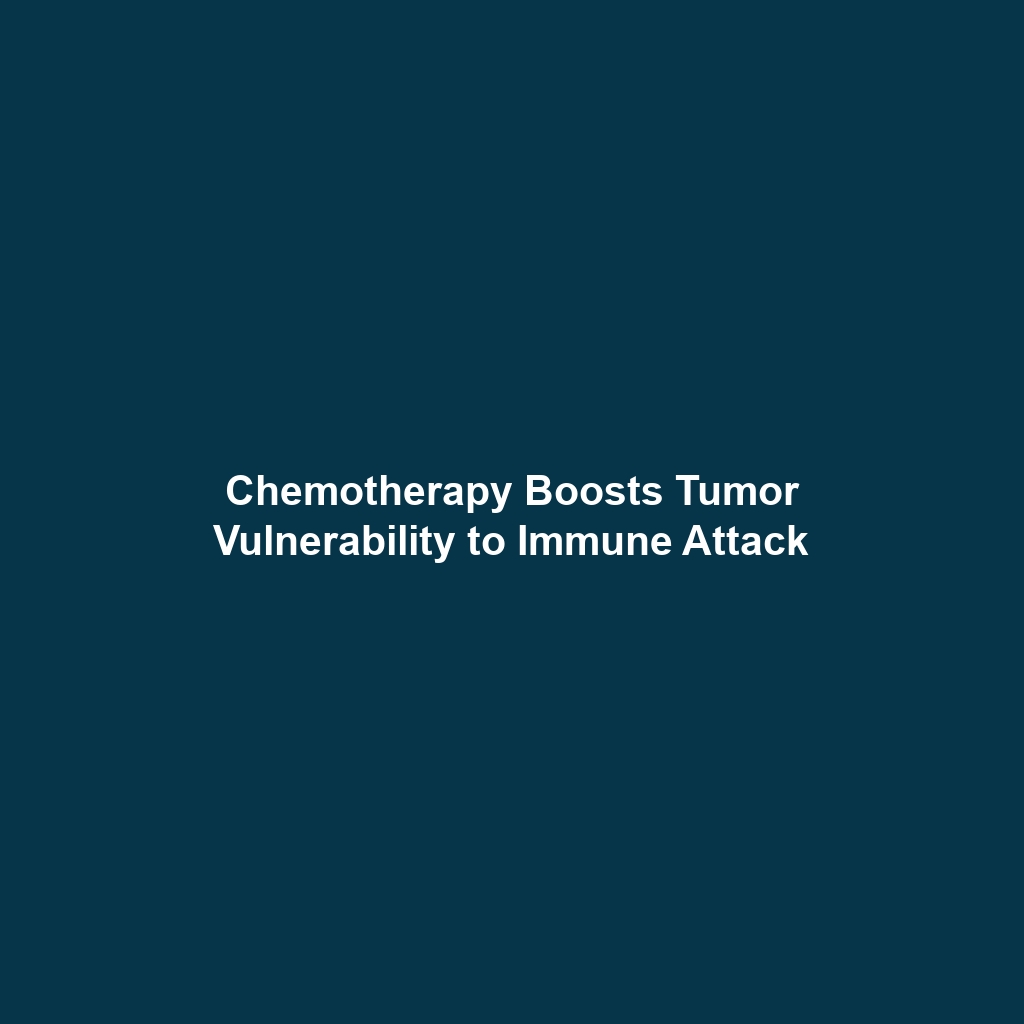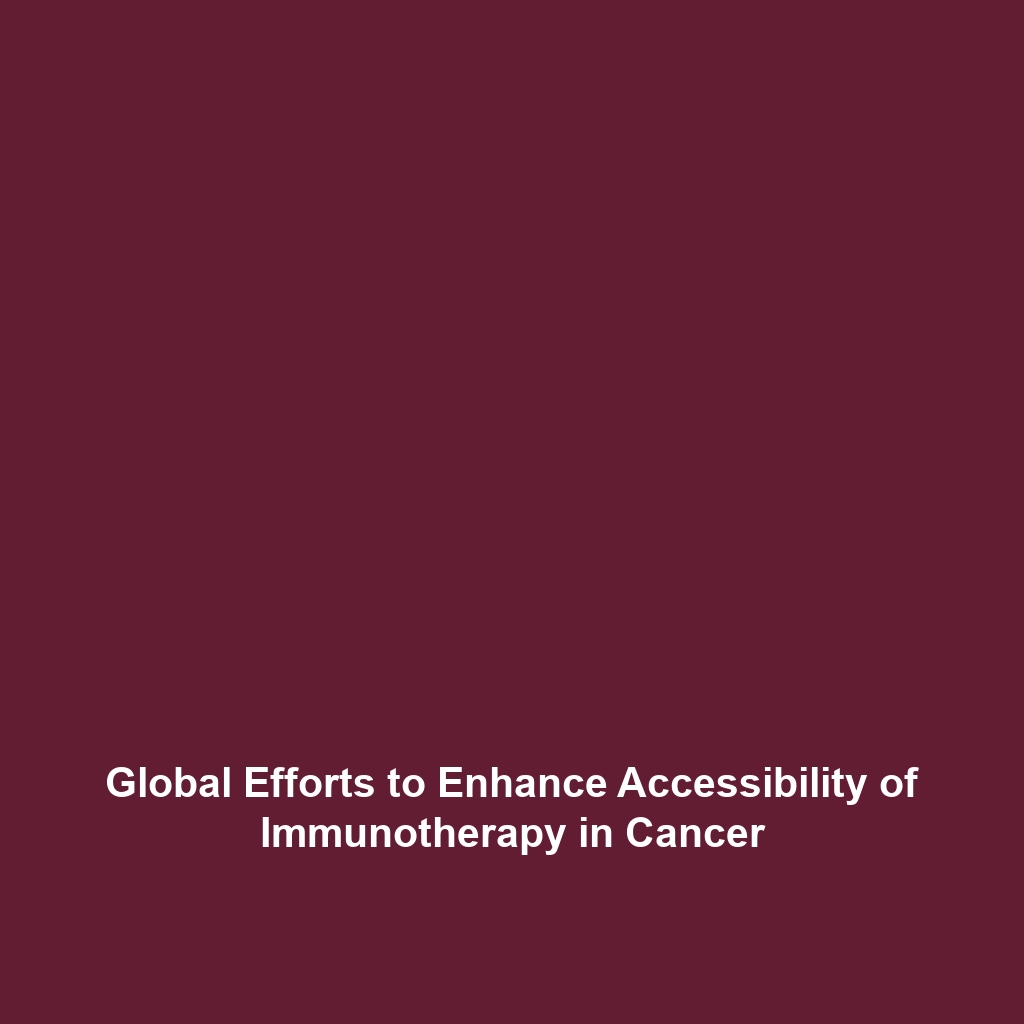How Chemotherapy Can Make Tumors More Susceptible to Immune Attack
Introduction
Chemotherapy has long been a cornerstone in cancer treatment, but emerging research highlights its crucial role in enhancing tumors’ susceptibility to immune attacks. Understanding how chemotherapy can modulate the tumor microenvironment opens avenues for innovative immunotherapy strategies that could improve patient outcomes. This article delves into the mechanisms involved, the significance of this interplay, and the future implications within the realm of immunotherapy and cancer.
Key Concepts
The Role of Chemotherapy in Cancer Treatment
Chemotherapy primarily aims to kill rapidly dividing cancer cells. However, studies reveal that it also alters the tumor microenvironment, making cancer cells more recognizable to the immune system. This dual role is pivotal in advancing immunotherapy approaches.
Mechanisms of Immune Modulation
- Increased Antigen Presentation: Chemotherapy can lead to the release of tumor antigens, stimulating an immune response.
- Immunogenic Cell Death: Some chemotherapeutic agents induce a type of cell death that enhances the immune system’s ability to target tumors.
- Enhanced T Cell Activation: Chemotherapy may foster a more conducive environment for T cell activation and proliferation.
Applications and Real-World Uses
Understanding how chemotherapy can make tumors more susceptible to immune attack has led to significant advancements in clinical practice. The integration of chemotherapy with immunotherapy is transforming treatment regimens for various cancers, including:
- Combination Therapies: Using chemotherapeutic agents alongside immune checkpoint inhibitors to boost efficacy.
- Personalized Treatment Plans: Tailoring chemotherapy doses to enhance immune responses based on tumor profiling.
- Adjuvant Strategies: Employing chemotherapy before and after immunotherapy to enhance overall treatment outcomes.
Current Challenges
Despite promising findings, several challenges remain in the study and application of how chemotherapy can make tumors more susceptible to immune attack:
- Variability in patient responses to chemotherapy and immunotherapy combinations.
- Understanding the mechanisms behind tumor resistance to immune attack.
- Identifying biomarkers that predict positive responses to combined therapies.
Future Research and Innovations
Ongoing research is crucial to unlock the full potential of chemotherapy in immunotherapy contexts:
- Next-Generation Sequencing: Utilizing genomic data to personalize combination therapies.
- New Chemotherapeutic Agents: Exploring new drugs that specifically enhance immune responses.
- Innovative Delivery Systems: Investigating ways to deliver chemotherapy precisely to tumors to minimize side effects while enhancing immune modulation.
Conclusion
The intricate relationship between chemotherapy and immune response offers a promising frontier in cancer treatment. By enabling tumors to become more susceptible to immune attack, chemotherapy enhances the efficacy of immunotherapy approaches. Continued research in this intersection is vital for developing more targeted and efficient treatment protocols. For further insights, explore related topics on immunotherapy advancements and new cancer treatment strategies.









